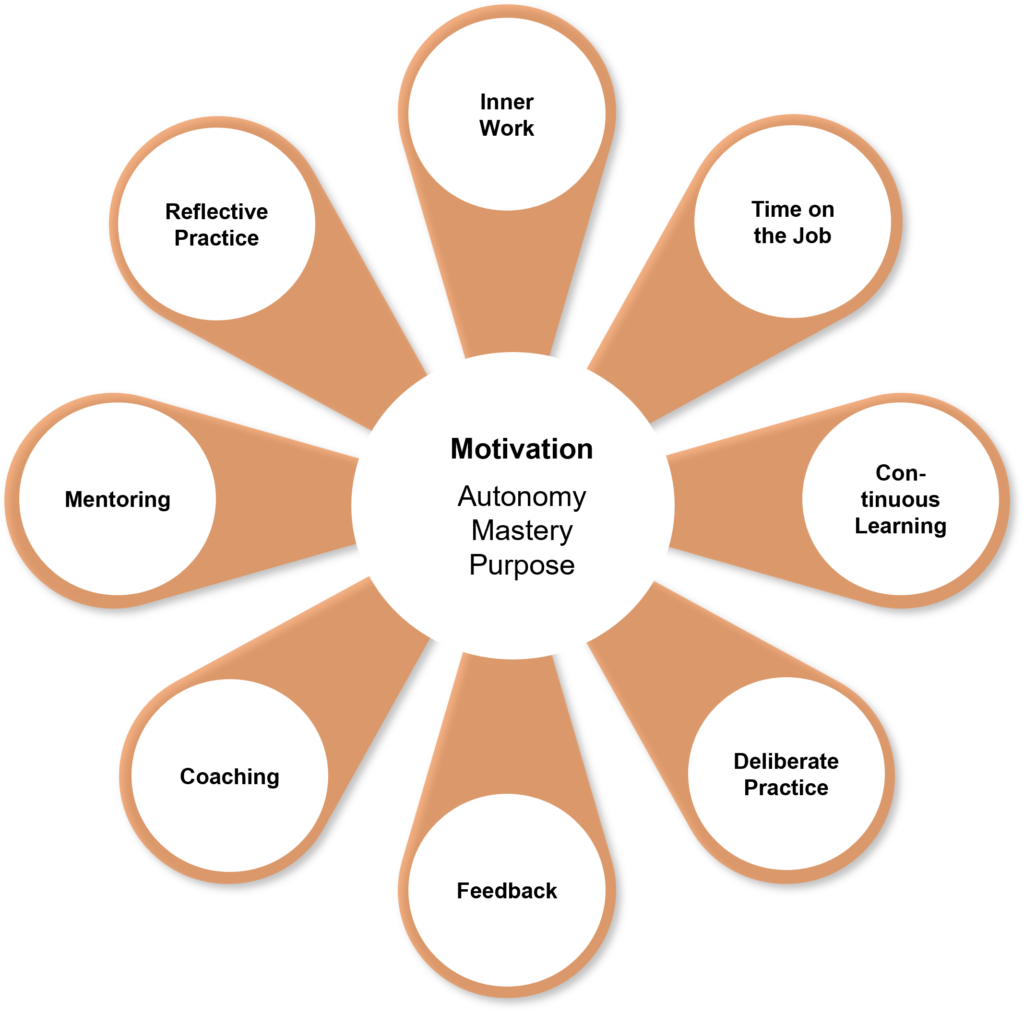Accelerating Executive Mastery >>
Written for founders, CEOs, investors, corporate executives and other leaders across professional disciplines, Accelerating Executive Mastery >> deep-dives into the metagame of mastery in a complex world.
The Big Idea 💡
- The types of systemic challenges we face as leaders can’t be solved by intellectual horsepower and expertise alone. How do you master this world?
- The popular literature on expertise, leadership and mastery addresses the development of technical skills in well-structured, ‘kind’ learning environments. The focus is on individuals attaining high proficiency within specific disciplines, where feedback is fast and results are directly measurable. With the right mindset and practice, success and mastery will follow.
- But it’s not like this in the C-suite and Boardroom. Leaders operate in ‘wicked’ learning environments. Information and feedback is messy, random, incomplete, ambiguous, inconsistent, unpalatable, or secondhand. The relationship between cause and effect isn’t known until afterwards, if ever at all. What worked once may not work again. You can’t just ‘know better’. You must look inwards, to understand yourself, and outwards, to understand the perspectives of your people, organisation, competitors and market.
- Accelerating Executive Mastery >> focuses on the activities you need to work tenaciously across to accelerate your pace of personal growth:
Go deeper on Executive Mastery ↴
“Playing tennis on Mars”: Why lessons from sport can sideline victory in business >>
What could Kobe Bryant have taught you about being a better CEO? What can you learn from Bill Belichick about driving your team’s performance? With their shared focus on performance and winning, and because our brains are wired to think in analogies and metaphors, it’s quick and easy to draw comparisons between sport and business leadership. But it can also be lazy and problematic… read more
Leadership beyond deliberate practice >>
Can deliberate practice help you master the craft of business and leadership?
Whilst it can be very helpful in the earlier stages of your leadership journey, it becomes less helpful as you advance in your executive career. That’s because deliberate practice is contingent upon rapid feedback in ‘kind’ environments. But senior leaders must navigate challenges that are devoid of rapid, plentiful feedback, or any feedback at all… read more
The Myth of Deliberate Practice & Mastery >>
Perhaps the self-improvement literature’s biggest act of mis-selling is telling us that if we want to improve at anything then we need to undertake deliberate practice. According to one guru “regardless of where we choose to apply ourselves, deliberate practice can help us maximize our potential”. It sounds enticing, but it’s incorrect. Deliberate practice won’t necessarily help you achieve mastery regardless of where you choose to apply yourself.
Discover the difference between kind and wicked learning environments, and why deliberate practice works well in the former but poorly in the latter… read more
Mental Models & Mastery: Forging a Theory >>
Explores the foundations of learning and our construction of knowledge:
- How mental models form the basis of cognition, and how we construct increasingly sophisticated mental models over time.
- How we move from acquiring the explicit knowledge that characterises our earlier work careers – teachable, learnable, conceptual facts which form the basis of our mental models – to tacit knowledge, that which is hard to express, extract, formalise or codify (including personal wisdom, experience, insight, and intuition).
- Learn about Cognitive Flexibility Theory and Cognitive Transformation Theory, which underpin your journey to mastery… read more
The Mental Models Paradox >>
People have become obsessed with what mental models they can use to make them smarter. If we take these mental models and conceptual frameworks and run our reality through them, then we’ll become better thinkers and make better decisions. Or will we?
Here’s the paradox: good mental models, and other conceptual frameworks, make us smarter but only up to a point, after which they can actually constrain our thinking.
Make sure your mental models are building blocks to higher wisdom, not brick walls constraining your thinking… read more
The Duck-Rabbit & the Polarities of Leadership >>
As leaders, we’re told that we must be great problem solvers. That’s true, but a polarity is not the same thing as a problem, for which a definitive solution can be reached at a given point in time.
The ability to recognise when we are facing a polarity – otherwise known as a paradox, duality, dichotomy, tension, or wicked problem – can be a developmental leap for leaders. Embracing the polarities we face with a both/and mindset, as opposed to trying to solve them as problems with an either/or approach, opens up whole new ways forward… read more
Thank you to Cedric Chin, who inspired this exploration by introducing me to the book Accelerating Expertise: Traing for High Proficiency in a Complex World and sending me further down the rabbit hole of mastery. Cedric has done much more work on this subject and I encourage you to read it.

